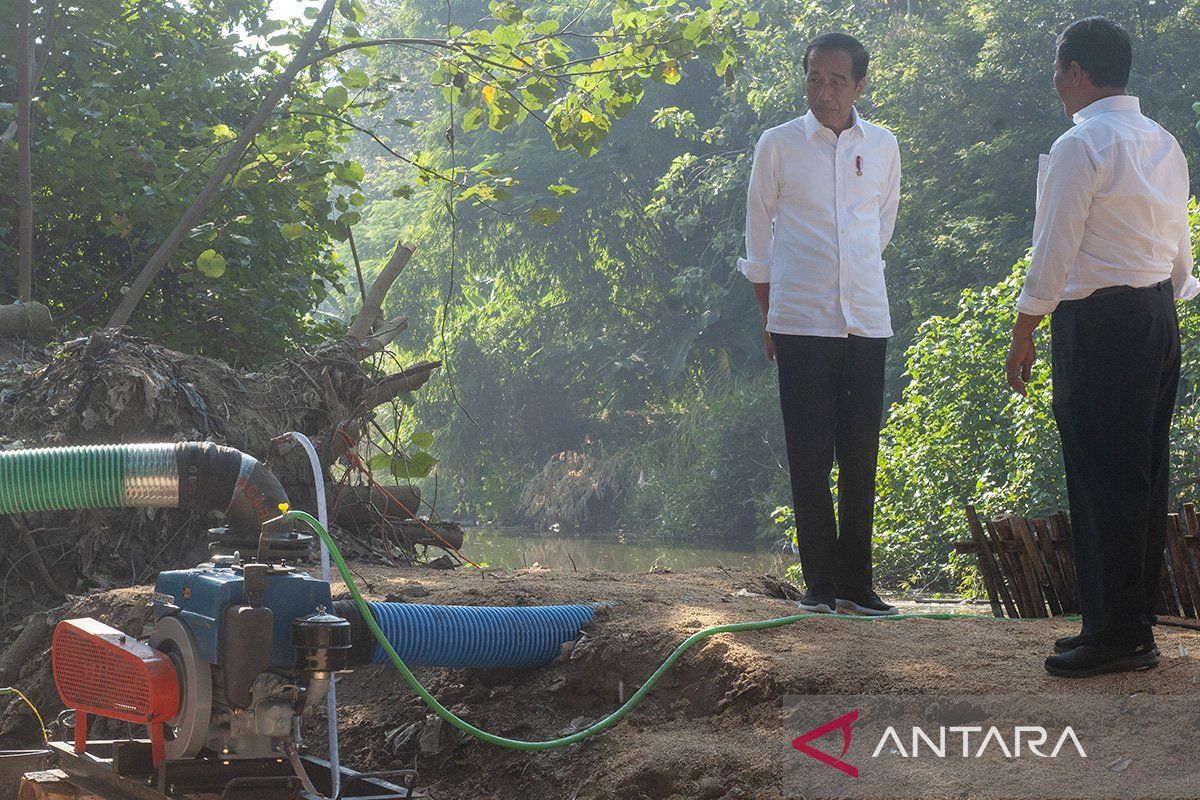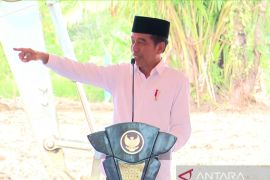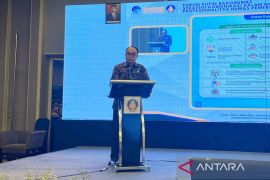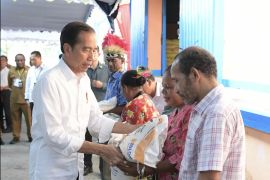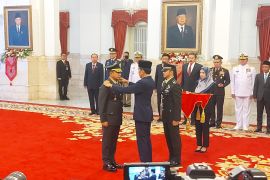"The process is dynamic; sometimes it yields positive outcomes, while at other times, it faces challenges due to the uncertain climate," he said in a video broadcast from the Presidential Secretariat on Friday.
He made these remarks after reviewing a water pump in a village in Bantaeng, South Sulawesi.
Although Indonesia had previously attained food self-sufficiency, climate phenomena such as El Nino and La Nina led to a decline in agricultural production.
Jokowi emphasized that climate significantly influences agricultural productivity not only in Indonesia but also worldwide.
“The climate impacts productivity across all countries,” he remarked. “In the past two years, even countries with excess production have experienced sharp declines.”
Minister of Agriculture Andi Amran Sulaiman previously announced the government's goal of achieving food self-sufficiency and promptly developing food barns.
To achieve this objective, the government is concentrating on installing water pumps, expanding rice fields, and modernizing traditional agriculture practices.
Sulaiman said that Indonesia was able to achieve food self-sufficiency in 2017, 2019, and 2020.
"Currently, we focus on collaborative policies and joint efforts. Since joining the cabinet, my aim has been to achieve food self-sufficiency," he pointed out.
He assured farmers that President Jokowi and President-elect Prabowo Subianto prioritized the agriculture sector. Initiatives include increasing fertilizer allocations to 100 percent and involving the Indonesian Defense Forces (TNI) in pump installation.
Jokowi also urged the Agriculture Ministry to allocate 70,000 pumps, supporting rice field irrigation and mitigating the forecasted drought in Indonesia from July to October.
Related news: Jakarta taking requisite measures to anticipate global food crisis
Related news: Bapanas urges action on Indonesia's food waste
Translator: Mentari Dwi G, Resinta Sulistiyandari
Editor: Anton Santoso
Copyright © ANTARA 2024
